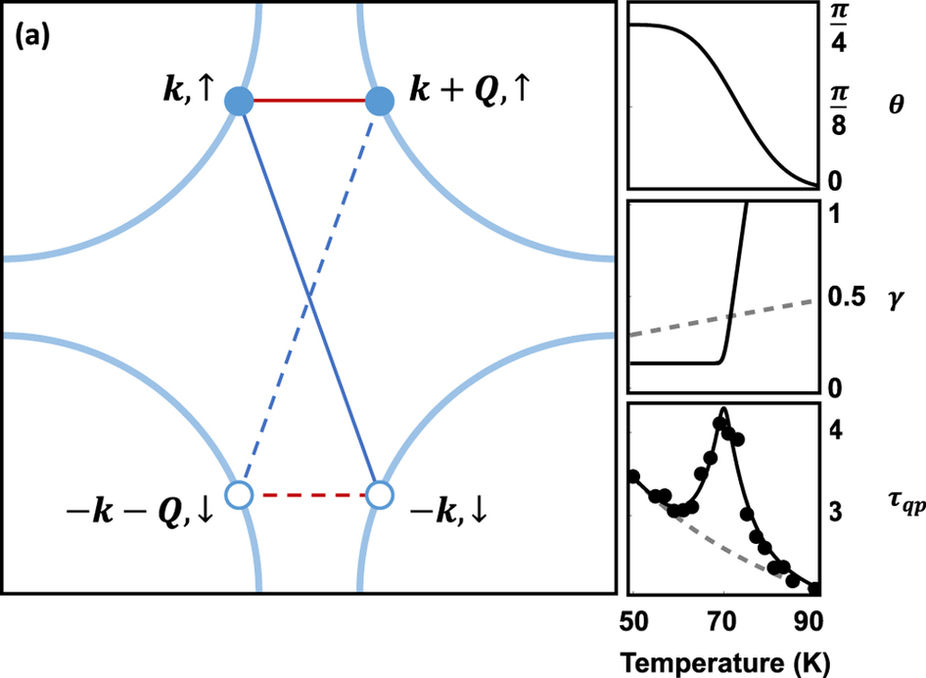Abstract
In the underdoped copper-oxides, high-temperature superconductivity condenses from a nonconventional metallic “pseudogap” phase that exhibits a variety of non-Fermi liquid properties. Recently, it has become clear that a charge density wave (CDW) phase exists within the pseudogap regime. This CDW coexists and competes with superconductivity (SC) below the transition temperature T-c, suggesting that these two orders are intimately related. Here we show that the condensation of the superfluid from this unconventional precursor is reflected in deviations from the predictions of BSC theory regarding the recombination rate of quasiparticles. We report a detailed investigation of the quasiparticle (QP) recombination lifetime, tau(qp),, as a function of temperature and magnetic field in underdoped HgBa2CuO4+δ (Hg-1201) and YBa2Cu3O6+x (YBCO) single crystals by ultrafast time-resolved reflectivity. We find that tau qp(T) exhibits a local maximum in a small temperature window near T-c that is prominent in underdoped samples with coexisting charge order and vanishes with application of a small magnetic field. We explain this unusual, non-BCS behavior by positing that T-c marks a transition from phase-fluctuating SC/CDW composite order above to a SC/CDW condensate below. Our results suggest that the superfluid in underdoped cuprates is a condensate of coherently-mixed particle-particle and particle-hole pairs.
